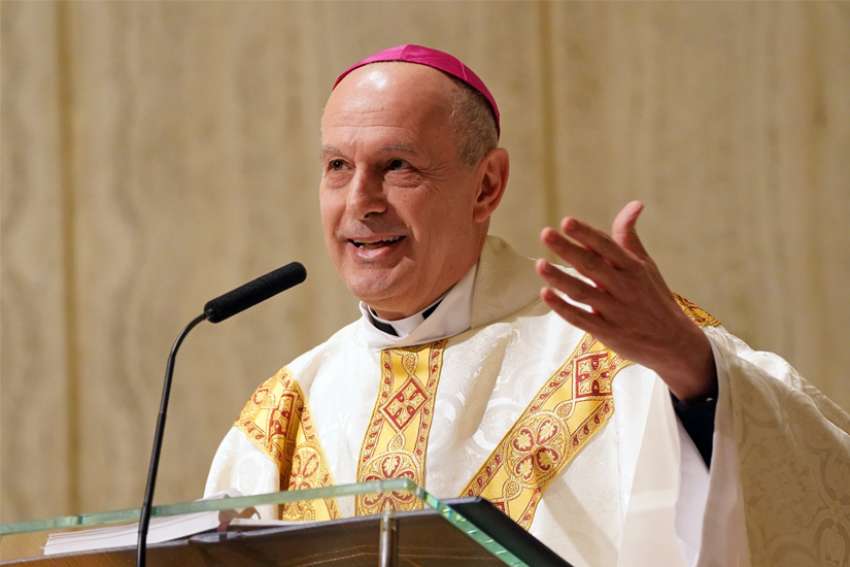Archbishop Gabriele Caccia said in a statement to a committee of the UN General Assembly Oct. 12 that terrorists’ “utter disdain for life and fundamental freedoms, their unspeakable crimes against women and children and the savage barbarity of their acts of destruction call for absolute condemnation.”
“No ideological, political, philosophical, racial, ethnic or religious reasons can ever justify or excuse terrorism,” Caccia told the committee that considers legal questions within the General Assembly.
The archbishop called for multilateral co-operation based on the four pillars of the Global Counter Terrorism Strategy to defeat terrorist acts. The pillars include addressing conditions conducive to spreading terrorism; measures to prevent and combat terrorism; methods to build the capacity of nations to prevent and combat terrorism; and steps to ensure respect for human rights and the rule of law in fighting terrorism.
Caccia said efforts to confront terrorism must respect human rights and encompass rigorous adherence to international human rights and humanitarian laws.
He expressed concern that at times anti-terrorism measures hinder the delivery of humanitarian aid to suffering civilians.
“While the concern that aid not fall into the hands of terrorists themselves is indeed legitimate, those measures should not become yet another heavy burden for the civilian population,” he said.
The archbishop also urged world leaders to give greater attention to solutions that address “the root causes of terrorism,” such as the lack of education for youth, severe economic disparity, the marginalization of individuals or groups, and disrespect for diversity and inclusiveness.
Any counterterrorism steps “must involve local communities, local governments and grassroots organizations” because they play important roles in preventing “youth from being radicalized,” he added.
In concluding his statement, Caccia suggested greater efforts are needed to foster tolerance and inclusivity toward minority groups “through a robust promotion of the right to freedom of conscience, religion and belief.”
Caccia also delivered a statement during a meeting of the Special Political and Decolonization Committee of the General Assembly, addressing the growing difficulties facing Palestinian refugees because of the coronavirus pandemic.
These refugees, he said, have to deal with increasingly crowded living conditions, restricted income, chronic disease and constrained mobility, which leads to their greater vulnerability to the coronavirus.
He also expressed concern over reports from Syria estimating that two-thirds of the Palestinian refugees in the country have been displaced at least once since the start of the country’s civil war in 2011, worsening their “already hazardous life conditions.”


